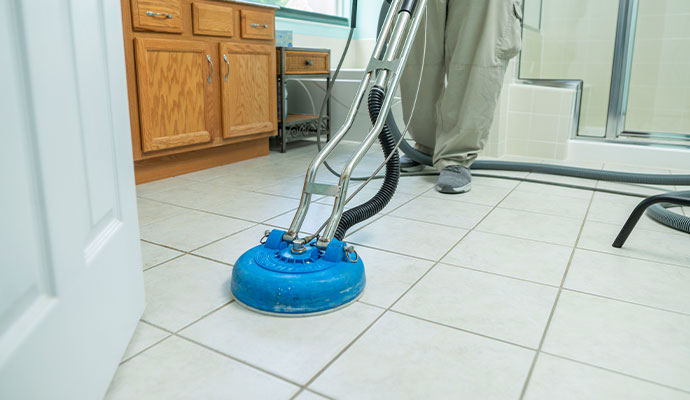Lichen Planus Relief: Top Natural Treatments You Need to Try Today
Lichen Planus is a non-contagious inflammatory condition that affects the skin, hair, nails, and mucous membranes. It presents itself in the form of purplish, flat-topped bumps or lesions, and can lead to significant discomfort and distress. While there is no known cure for Lichen Planus, many individuals seek out ways to alleviate the symptoms and manage the condition naturally. If you’re dealing with Lichen Planus, you’ll be pleased to know there are several natural remedies that may help provide relief from its often frustrating symptoms.
What is Lichen Planus?
Lichen planus is a chronic inflammatory condition that affects the skin, mucous membranes, hair, and nails. It is characterized by an immune system reaction, although the exact cause is often unknown. Here’s a brief overview:
Symptoms:
- Skin:
- Small, flat-topped, polygonal, purplish bumps.
- Itchy rash, often found on wrists, ankles, lower back, and neck.
- Mucous Membranes:
- White, lacy patches or painful sores in the mouth or genital area.
- Hair:
- Hair loss or scarring on the scalp (lichen planopilaris).
- Nails:
- Thinning, ridging, or splitting of nails.
Causes:
The exact cause is unclear, but it’s thought to involve an autoimmune response where the body’s immune system attacks its own tissues. Potential triggers include:
- Certain medications (e.g., NSAIDs, blood pressure drugs).
- Infections (e.g., hepatitis C).
- Stress or injury to the skin.
The Need for Natural Treatments
If you’re dealing with Lichen Planus, the inflammation, pain, and discomfort it causes can be overwhelming. While conventional medicine offers treatment options, natural treatments can be a beneficial adjunct. They not only help with symptom relief but also support the body’s overall health and immunity. By incorporating natural remedies into your routine, you can enhance your body’s ability to cope with the condition while promoting long-term well-being.
1. Aloe Vera: A Soothing Solution
Aloe vera is one of the most popular natural remedies for a variety of skin conditions, including Lichen Planus. Known for its anti-inflammatory, soothing, and healing properties, aloe vera can be used topically to calm inflamed skin and reduce the appearance of lesions.
How Aloe Vera Helps:
- Soothes the Skin: Aloe vera gel has a cooling effect on the skin, which can help reduce the itching and burning sensations associated with Lichen Planus.
- Promotes Healing: Aloe contains compounds like acemannan that can stimulate the skin’s healing process, potentially helping the lesions to heal faster.
- Reduces Inflammation: The anti-inflammatory properties of aloe vera can help reduce redness and swelling around the affected areas.
How to Use:
You can apply fresh aloe vera gel directly from the plant to the affected areas. Alternatively, you can purchase aloe vera gel from stores, ensuring it is pure and free from additives.
2. Turmeric: The Anti-Inflammatory Powerhouse
Turmeric, particularly its active compound curcumin, is well-known for its powerful anti-inflammatory and antioxidant properties. Research has suggested that curcumin can help modulate the immune response, making it an excellent option for those seeking Lichen Planus relief.
How Turmeric Helps:
- Reduces Inflammation: Curcumin in turmeric helps inhibit inflammatory pathways that contribute to the inflammation seen in Lichen Planus.
- Boosts Immunity: By supporting the immune system, turmeric can help your body respond better to the triggers of Lichen Planus.
- Supports Skin Health: Turmeric can assist in the regeneration of damaged skin, helping to repair the lesions associated with Lichen Planus.
How to Use:
Turmeric can be consumed as a supplement, in teas, or as a spice in food. If you prefer topical treatments, make a paste by mixing turmeric powder with a small amount of water or coconut oil and apply it directly to the affected areas.
3. Coconut Oil: Moisturizing and Anti-Inflammatory
Coconut oil is another natural remedy that has garnered attention for its skin benefits, especially in the treatment of inflammatory skin conditions like Lichen Planus. It has moisturizing, antimicrobial, and anti-inflammatory properties, which help soothe irritated skin.
How Coconut Oil Helps:
- Moisturizes the Skin: The natural fatty acids in coconut oil lock in moisture, preventing the skin from becoming dry and cracked, which can often exacerbate Lichen Planus symptoms.
- Anti-Inflammatory Effects: The lauric acid in coconut oil can reduce inflammation and provide relief from the redness and swelling of the lesions.
- Heals Skin: Coconut oil supports the healing of skin damage and helps prevent scarring.
How to Use:
Apply organic, virgin coconut oil to the affected areas at least twice a day to help moisturize and soothe the skin.
4. Apple Cider Vinegar: A Natural Antiseptic
Apple cider vinegar (ACV) is widely known for its antimicrobial properties and is often used as a natural remedy for various skin issues, including Lichen Planus. It can help balance the pH of the skin and act as a mild exfoliant, removing dead skin cells and promoting healing.
How Apple Cider Vinegar Helps:
- Antibacterial and Antifungal: ACV helps keep infections at bay by cleansing the skin of bacteria and fungi that can exacerbate Lichen Planus symptoms.
- Balances pH: The acidic nature of ACV helps restore the skin’s natural pH, which may be disrupted due to the condition.
- Relieves Itching: The astringent properties of ACV can help reduce itching and irritation.
How to Use:
Dilute apple cider vinegar with an equal amount of water and apply it to the affected skin with a cotton ball. Leave it on for a few minutes before rinsing off with lukewarm water.
5. Essential Oils: Calming and Healing
Essential oils have been used for centuries for their therapeutic benefits, and some of them are particularly effective in managing the symptoms of Lichen Planus. Some of the most commonly recommended oils for this condition include tea tree oil, lavender oil, and chamomile oil.
How Essential Oils Help:
- Tea Tree Oil: Known for its antimicrobial properties, tea tree oil can help cleanse the skin and prevent infections.
- Lavender Oil: Lavender has anti-inflammatory properties that can help calm the skin and reduce itching.
- Chamomile Oil: Chamomile is soothing and can reduce the irritation and redness associated with Lichen Planus.
How to Use:
Dilute the essential oils with a carrier oil like coconut or jojoba oil, and apply to the affected areas. Ensure you perform a patch test first to check for any allergic reactions.
6. Dietary Adjustments: Anti-Inflammatory Foods
Your diet plays a crucial role in managing autoimmune conditions like Lichen Planus Herbal Treatment. By focusing on an anti-inflammatory diet, you can help reduce the frequency and severity of flare-ups.
Recommended Foods:
- Omega-3 Fatty Acids: These healthy fats, found in fish like salmon and in flaxseeds and walnuts, help reduce inflammation.
- Fruits and Vegetables: Rich in antioxidants, they help support the immune system and combat oxidative stress.
- Probiotics: Fermented foods like yogurt, kefir, and kimchi promote gut health, which is essential for immune system regulation.
Avoid:
- Processed Foods: High-sugar and high-fat foods can exacerbate inflammation and worsen the condition.
- Gluten: Some people with autoimmune disorders benefit from avoiding gluten-containing foods.
7. Herbal Supplements for Lichen Planus Relief
Certain herbal supplements have been found to reduce inflammation and support immune system health, providing additional Lichen Planus relief. Below are some herbal remedies that may help:
- Ashwagandha: This adaptogen helps reduce stress, which is often a trigger for Lichen Planus flare-ups. It also has anti-inflammatory properties.
- Burdock Root: Known for its detoxifying and anti-inflammatory effects, burdock root can help cleanse the blood and reduce skin inflammation.
- Licorice Root: Licorice has been shown to have anti-inflammatory effects and may help reduce the severity of skin lesions associated with Lichen Planus.
8. Stress Management: Essential for Long-Term Relief
Since stress can trigger or worsen Lichen Planus, managing stress is a key part of any treatment plan. Techniques such as yoga, meditation, deep breathing exercises, and regular physical activity can help alleviate stress and promote overall wellness.
Conclusion
Living with Lichen Planus can be a challenge, but incorporating natural treatments into your routine can significantly reduce symptoms and improve your quality of life. From aloe vera to herbal supplements for Lichen Planus, there are many remedies that can help you find relief without resorting to pharmaceutical options. Remember, consistency is key, and it’s always a good idea to consult with your healthcare provider before trying new treatments, especially if you’re considering herbal supplements for Lichen Planus. By combining these natural remedies with stress management and dietary adjustments, you can take control of your condition and live a more comfortable, healthier life.







